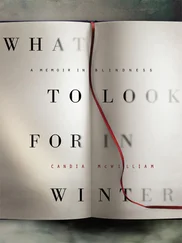Edeet Ravel - Look for Me
Здесь есть возможность читать онлайн «Edeet Ravel - Look for Me» весь текст электронной книги совершенно бесплатно (целиком полную версию без сокращений). В некоторых случаях можно слушать аудио, скачать через торрент в формате fb2 и присутствует краткое содержание. Жанр: Старинная литература, на английском языке. Описание произведения, (предисловие) а так же отзывы посетителей доступны на портале библиотеки ЛибКат.
- Название:Look for Me
- Автор:
- Жанр:
- Год:неизвестен
- ISBN:нет данных
- Рейтинг книги:5 / 5. Голосов: 1
-
Избранное:Добавить в избранное
- Отзывы:
-
Ваша оценка:
- 100
- 1
- 2
- 3
- 4
- 5
Look for Me: краткое содержание, описание и аннотация
Предлагаем к чтению аннотацию, описание, краткое содержание или предисловие (зависит от того, что написал сам автор книги «Look for Me»). Если вы не нашли необходимую информацию о книге — напишите в комментариях, мы постараемся отыскать её.
Look for Me — читать онлайн бесплатно полную книгу (весь текст) целиком
Ниже представлен текст книги, разбитый по страницам. Система сохранения места последней прочитанной страницы, позволяет с удобством читать онлайн бесплатно книгу «Look for Me», без необходимости каждый раз заново искать на чём Вы остановились. Поставьте закладку, и сможете в любой момент перейти на страницу, на которой закончили чтение.
Интервал:
Закладка:
We joined a very long queue of cars, taxis, transits, and pedestrians. Young, old, male, female, children, families, students. One young woman, slender and dressed in black slacks and a pale blue blouse, was carrying an infant in her arms. The child looked unwel , and the woman, who could have been a university student, was furious. I had never seen such seething rage. The woman wasn’t carrying anything else, only the child; not even a bot le for the child. Whatever she had, money or her ID, must have been in the pockets of her slacks. The baby was asleep, and appeared to be feverish. She made her way through the crowd, pushing ahead of the queue, and no one dared to stop her. I wondered whether her fierce desperation would get her through the checkpoint.
The line crawled forward, inch by inch. There was a smal white car ahead of us, with two men inside. Final y the white car reached the barrier. The driver handed the border guard his ID but the two other men in the car didn’t have theirs. They began to explain, but the soldier wasn’t interested. He motioned to his three friends to come over. The guards dragged out the two men and took them to a wal at the side of the road. They cu ed the men’s hands behind their backs, blindfolded them, turned them toward the wal and pushed them down to the ground, because you can’t stand up when you’re blindfolded and your hands are bound, someone had once explained that to me.
It was the rst time I had witnessed this sort of arrest. I had seen men in detention or being taken away in a van or being led to a shed. At times they had been handcuf ed, but not blindfolded and pushed down facing a wal . Seeing these things in real life was dif erent from seeing it in newspapers or even on television. I wanted to take a photograph of the arrest but I didn’t have my camera. It was impossible to sit there and not do anything. I ran out of El a’s car and threw myself on one of the men, wrapped my arms around him. I felt his warm, surprised body next to mine, his head turning quizzical y back, and his blindfold touched my cheek.
The soldier who ordered the three men arrested pul ed me away and threw me on the ground. He crouched over me and slapped my arm.
“Are you crazy?” he shouted at me. I heard El a’s voice saying, “Leave her alone.” But the soldier was too angry. He went on hit ing my arm again and again. I had never been hit before, except in play. It was hard to believe that this was a human hand was striking me and not a metal bar; I was unfamiliar with the force of a strong body. I was surprised, too, at how hurt my feelings were. The tears that came to my eyes had more to do with insult than pain.
“Are you out of your mind?” he repeated. “What’s wrong with you? What’s the mat er with you?” He was let ing out al his frustration on me.El a was shouting at him but he ignored her. Final y one of the border guards, a short kid with an earring, came over and said something.
The soldier stood up and lit a cigaret e.
“You’re completely insane,” the kid with the earring told me. He used the plural form, as though I represented an entire race.
I dusted myself of and headed back toward the car.
“Hey.” The soldier who had hit me pul ed me back. “You’re not going anywhere. What’s she doing with you, anyhow?” he asked El a.
“We’re together. I have a permit for both of us.”
“Yeah. Wel , she’s forfeited her permit. You can go. She’s staying.”
I looked at him with disgust. His smal brown eyes emit ed a dul , steady glow of stupidity. Stupidity was overal his most outstanding characteristic. I remembered a female soldier I had seen once at a new checkpoint that had been set up in a Palestinian neighborhood outside the capital. She was quite young, maybe even a teenager. She had round yel ow-green eyes and her face was expressionless as she checked the IDs of pedestrians and let them through. Then three women wrapped up in black and white hijab came up to her, and for some the IDs of pedestrians and let them through. Then three women wrapped up in black and white hijab came up to her, and for some unknown reason her face came to life. I don’t know why; I don’t know what it was about these women, two of them young and pret y, one much older, that roused her from her apathy. “Where are you going?” she asked, and her eyes widened and bulged out, so that the whites showed above and below her yel ow-green irises. It was a look that chal enged them to prove they deserved to stay alive, while asserting at the same time that they did not. I almost laughed, because I remembered the tactic from high school: there were one or two girls who always tried to make you feel smal and inconsequential, and they had perfected that bulge. They had no idea how stupid their faces became when they looked at someone that way: like mechanical toys with defective wiring. And now here was this soldier with her uniform and slanted cap and weapon, trying out that look on these three women. The women didn’t seem to notice. “We’re going to school, to teach,” they said calmly. They were impervious to her contempt; she could keep them from get ing through, but she couldn’t penetrate their equanimity. Their emotional lives were entirely inaccessible to her, and that was their saving grace. Defeated, the soldier had handed back their IDs and let them pass.
“I have to get through,” I said. “Someone’s expecting me.”
That only made it worse, of course. “In your dreams,” the soldier said.
“This is completely arbitrary!” El a stormed at him.
He didn’t bother answering her.
She drove her car to the side of the road and made a few phone cal s, waited, negotiated, made more phone cal s, but nothing helped, and in the end I persuaded her to continue without me. She had an important meeting to get to; people were counting on her.
“Go sit next to your friends,” the soldier ordered. “Not too close, though. And no talking.”
“I’m older than you,” I said.
“Go.”
I sat next to the blindfolded men and leaned my back against the wal . I turned my head to them and said, “I’m sorry.” Then I repeated it in English.
“You are the brave,” the one next to me answered in English.
There was nothing more to say. I watched as cars and people arrived at the barrier and were either let through without a search, or searched and turned away, or searched and let through. Some of those who were not permit ed to pass pleaded and argued, but they didn’t have a chance with the stupid soldier. I wanted to kick him in the bal s.
I sat there for two hours. I tried cal ing Ra on my mobile phone, but he didn’t answer, so I left a message tel ing him I was under arrest.
My back began to hurt and I was dying of thirst; I’d nished my smal bot le of water. I could tel the men next to me were thirsty too and I asked the kid with the earring to give them water. He came over with a plastic bot le and brought it to their mouths as if they were handicapped and he was their nurse. I got up and stretched, then sat down again. The blindfolded men were much more patient than I was; they seemed almost to be in a meditative state. I wondered whether they were in fact praying, or whether they were just very patient. I’d often noticed how patient Palestinians were in general. They didn’t get antsy the way we did.
Final y a police car arrived. I said good-bye to the two blindfolded men. “God send you good luck,” one of them said.
An o cer ushered me into the backseat of the car and drove me to one of the set lements, a closed-o suburban haven in the midst of hel .
It was my first time in a set lement and I was terrified of being kil ed.
The police station was white and new and oddly silent. “This station looks like a sugar cube some giant dropped on the lawn,” I told the of icer. I could tel he liked the image, but he pretended he hadn’t heard me.
Читать дальшеИнтервал:
Закладка:
Похожие книги на «Look for Me»
Представляем Вашему вниманию похожие книги на «Look for Me» списком для выбора. Мы отобрали схожую по названию и смыслу литературу в надежде предоставить читателям больше вариантов отыскать новые, интересные, ещё непрочитанные произведения.
Обсуждение, отзывы о книге «Look for Me» и просто собственные мнения читателей. Оставьте ваши комментарии, напишите, что Вы думаете о произведении, его смысле или главных героях. Укажите что конкретно понравилось, а что нет, и почему Вы так считаете.












